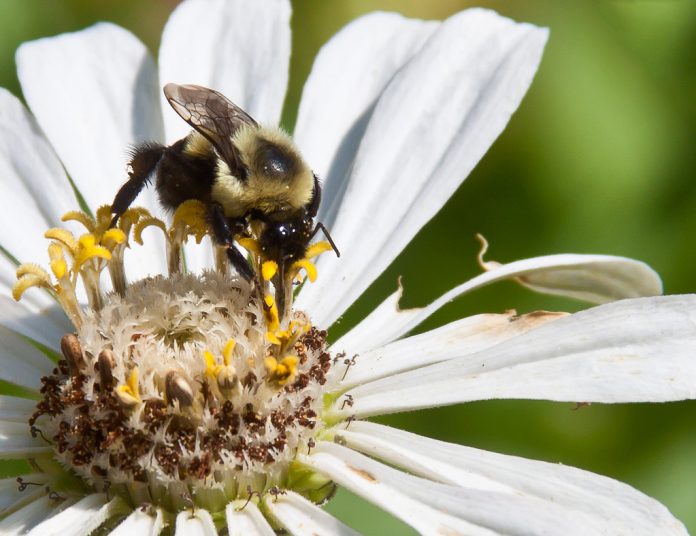MEPs call on the Commission to beef up its Pollinators Initiative and to come up with new measures to protect bees and other pollinators.
In a resolution adopted on Wednesday, Parliament welcomes the EU Pollinators Initiative, but highlights that, as it stands, it fails to protect bees and other pollinators from some of the many causes of their decline, including intensive farming, pesticides, climate change, land-use changes, loss of habitat and invasive species.
As pollinators are essential for biodiversity, agriculture and reproduction in many plant species, MEPs urge the Commission to present a full-scale action programme with sufficient resources.
Pesticide reductions necessary
To help further decrease pesticide residues in bee habitats, reducing the use of pesticides must become a key objective of the future Common Agricultural Policy (CAP), MEPs say.
They also call for EU-wide mandatory reduction targets to be included in the upcoming revision of the Directive on the sustainable use of pesticides.
Parliament finally demands more funds to support research into the causes of bee decline to protect the diversity of pollinator species.
The resolution was adopted by show of hands.
The S&D Group welcomes the approval
S&Ds stressed the importance of promoting measures to encourage biodiversity and protect the diversity of pollinator species in Europe. It is crucial that the Commission and the member states raise awareness on this issue and put in place concrete actions to support green infrastructure that recreates and restores mosaics of habitats and functional connectivity for pollinators in rural and urban landscapes say the Socialists and Democrats.
“Bees and other pollinators are fundamental for our ecosystems, our food production and hence for the future of our society. Three quarters of all the food we produce in Europe is dependent on pollination. It is really quite simple, no bees means no food. It is high time Europe switches to a greener agricultural model and a more sustainable use of pesticides to better protect our pollinators. That’s why the S&D Group demands mandatory EU-wide reduction targets for pesticides in order to create a non-toxic environment and to put an end to pollinators’ decline,” said the S&D environment committee coordinator, Jytte Guteland.
“Remove the bees from the earth and at the same stroke, you remove at least one hundred thousand plants that will not survive. Wild and domesticated pollinators are vital for food security, are key to support our ecosystem, and they are important for the economy: their impact is visible in food production as 15 billion euro of the annual agricultural output is directly linked to the pollinators. Four out of five wild flowers and crops in the European Union depend on insects for pollination,” commented the S&D shadow rapporteur, István Ujhelyi.
“Unfortunately, the diversity and the number of the pollinators has declined since 1970. Pollinators are declining mainly because of environmental pollution, climate change, pesticide use, urban development and agricultural management. We need to take urgent and transformative action to protect and restore pollinators in general – both domestic and wild – and their services. We need to get rid of pesticide dependency to protect our children and our planet’s future,” he added.
In April 2018, the EU agreed to fully ban the outdoor use of imidacloprid, clothianidin and thiamethoxam, known as neonicotinoids. However, several member states notified emergency exemptions regarding their use on their territory.
After calls from Parliament and Council for action to protect bees and other pollinators, the Commission presented its Communication on the EU Pollinators Initiative on 1 June 2018.
According to the Commission, around 84 % of crop species and 78 % of wild flower species in the EU alone depend, at least in part, on animal pollination. Up to almost EUR 15 billion of the EU’s annual agricultural output is directly attributed to insect pollinators.

